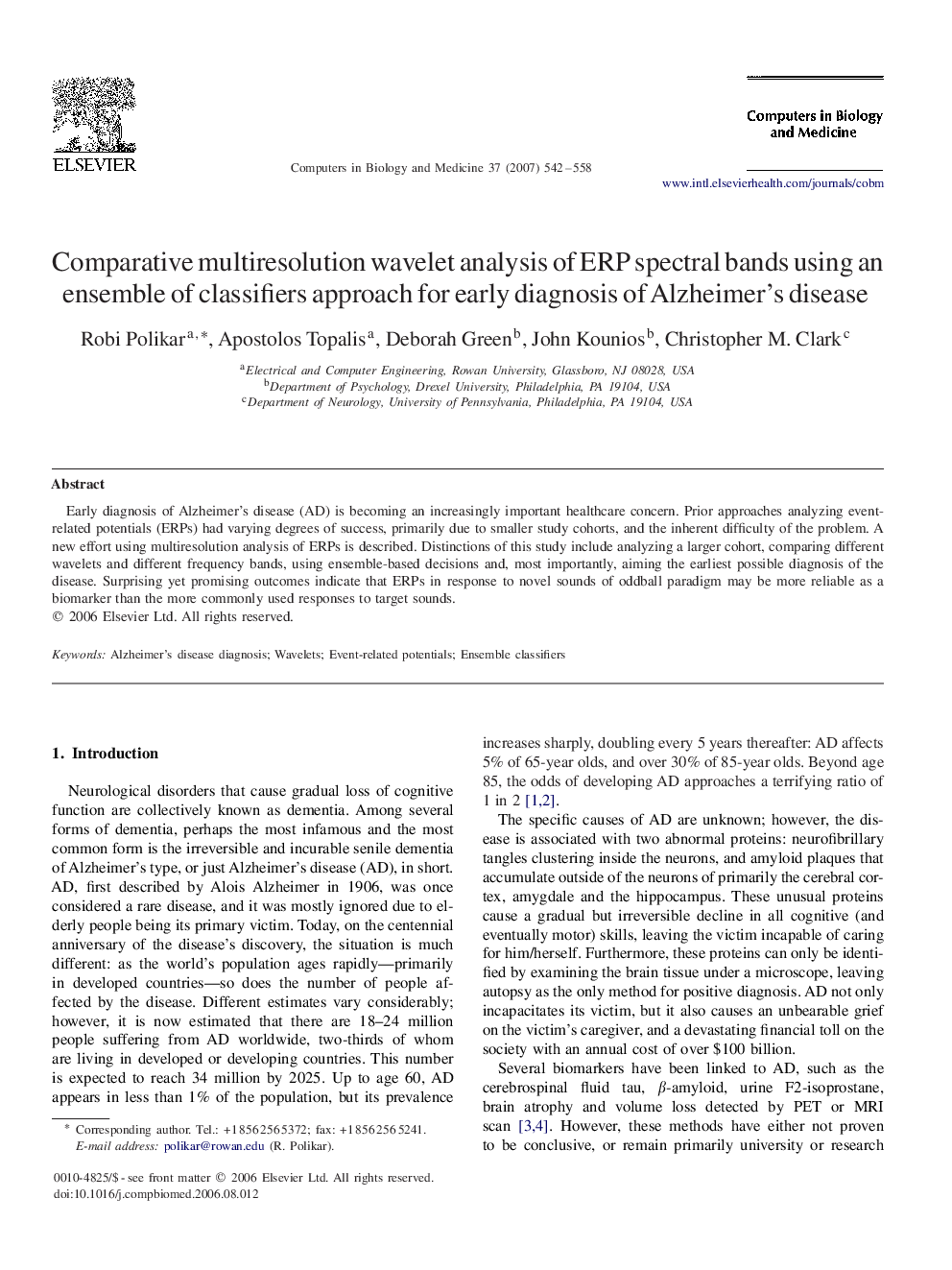| Article ID | Journal | Published Year | Pages | File Type |
|---|---|---|---|---|
| 505769 | Computers in Biology and Medicine | 2007 | 17 Pages |
Early diagnosis of Alzheimer's disease (AD) is becoming an increasingly important healthcare concern. Prior approaches analyzing event-related potentials (ERPs) had varying degrees of success, primarily due to smaller study cohorts, and the inherent difficulty of the problem. A new effort using multiresolution analysis of ERPs is described. Distinctions of this study include analyzing a larger cohort, comparing different wavelets and different frequency bands, using ensemble-based decisions and, most importantly, aiming the earliest possible diagnosis of the disease. Surprising yet promising outcomes indicate that ERPs in response to novel sounds of oddball paradigm may be more reliable as a biomarker than the more commonly used responses to target sounds.
